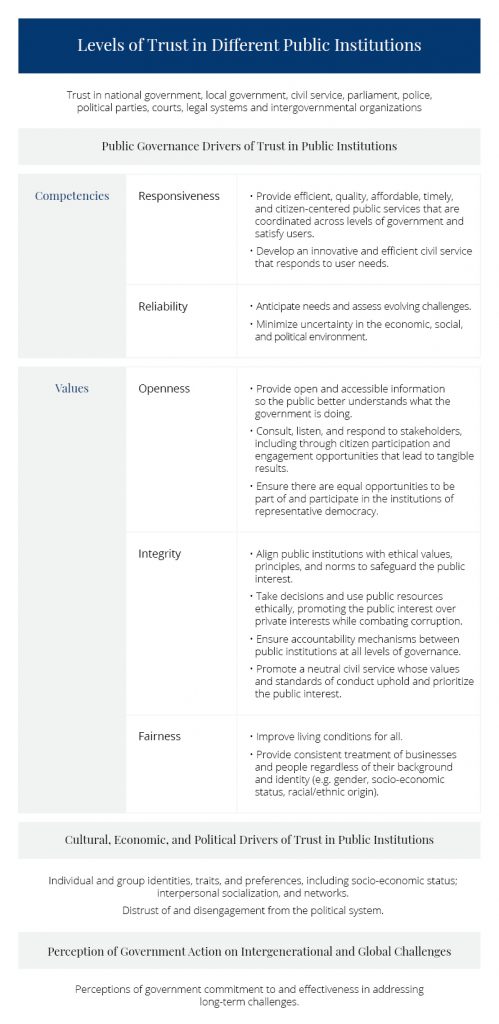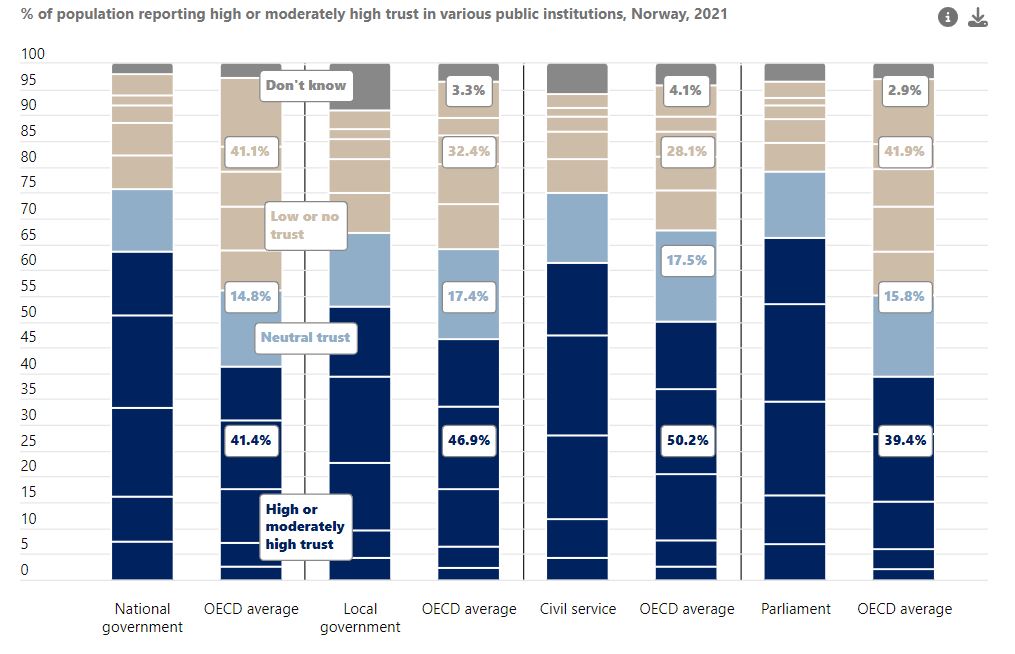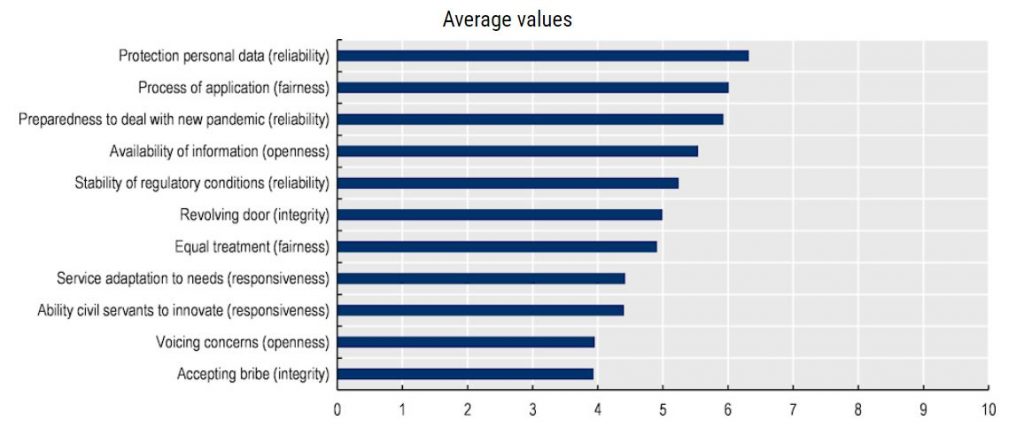This is how Norway is inspiring trust in government

Image Source: ©LumineImages via Canva.com
Trust in government is essential at all levels as it fuels citizens’ cooperation and compliance. In a rapidly evolving world, trust in government enhances the institution’s ability to make quick decisions, manage crises successfully, and adapt to changes while upholding accountability. Without trust, implementation in government could result in a lack of cohesion and unsatisfactory outcomes.
To explore the factors that drive trust in public institutions, the Organisation for Economic Co-operation and Development (OECD) developed a trust framework focused on two primary components: Competence and Values. This framework includes specific dimensions—Responsiveness, Reliability, Integrity, Openness, and Fairness—that governments can improve through targeted policy changes that aim to strengthen public trust (see Figure 1).
The framework underwent a consultative process with over 800 stakeholders through six webinars between 2020 and 2021. This effort resulted in measures aimed at restoring trust in government during and after the crisis, emphasizing inclusive rebuilding by considering socioeconomic, political, and cultural differences, and fostering support for addressing long-term, intergenerational challenges like climate change.

Figure 1. The OECD Trust Framework | Source: OECD, 2021
The OECD’s Trust Framework guided the development of the Trust Survey, an extensive cross-national survey that gathered over 50,000 responses from 22 member countries. This survey, designed to measure and understand what drives people’s trust in public institutions, directly reflects the dimensions outlined in the Trust Framework and provides insights for future policy reforms.
Read more: MyDigital: Malaysia’s digital transformation goals by 2030
According to the findings, Norway emerged as a standout with exceptionally high levels of trust in public institutions and significant citizen satisfaction.
A majority of Norwegians reported high or moderately high trust in national (64%) and local governments (53%) and civil services (61%). The Norwegians had the highest level of trust in parliament, where 66% report high or moderately high trust, 27 % points above the average across the OECD countries (39%) (see Figure 2).

Figure 2. Trust in Norwegian public institutions | Source: OECD, 2021
Furthermore, an estimated 87% of Norwegians are satisfied with the judiciary and education systems compared to 56% and 67%, respectively, across OECD countries on average. Around 80% are satisfied with the healthcare system, 12 % points higher than the average across OECD countries (68%).
The main determinants contributing to public trust in Norwegian institutions (see Figure 3), as analyzed through the OECD Trust Survey and organized into defined dimensions, are:
- Reliability: Norwegian citizens generally perceive their institutions as capable of protecting personal data, maintaining stable rules and norms, and managing future crises effectively. This reflects a strong sense of institutional reliability that underpins public trust.
- Openness: The survey indicates that Norwegians view their state as relatively open, particularly in terms of the accessibility of information about public services.
- Fairness: The public perceives that the state treats citizens fairly and ensures equal treatment by public services.
- Responsiveness: This area received fewer positive ratings, with fewer than half of the respondents believing that the government quickly addresses service problems or that citizens can significantly influence service changes.
- Integrity: Perceptions here are mixed. While respondents generally do not believe that members of parliament can be bribed, concerns exist about potential conflicts of interest involving politicians accepting business positions in return for political favors.

Figure 3. Drivers of institutional trust in Norway | Source: OECD 2021
These findings highlight the complexity of trust in public institutions, showing that while some aspects are highly rated, others, particularly responsiveness and integrity, could be improved to enhance overall trust.
Read more: How can a motivational culture impact the performance of public servants?
To improve responsiveness, Norway could enhance the user experience of its public services and encourage innovation within the public sector. This includes adopting emerging technologies, streamlining bureaucratic processes, and fostering continuous improvement. Additionally, implementing user satisfaction surveys, using data analytics to address public needs promptly, and increasing transparency in service delivery are critical steps to enhance government responsiveness.
In terms of integrity, centralizing efforts to prevent corruption and promoting transparent practices, including clear regulations and ethical training programs for public officials, are crucial steps, as recommended by the Council of Europe’s Group of States against Corruption (GRECO).
Trust serves as a cornerstone for effective governance, influencing citizen support, regulatory compliance, and societal cohesion. While Norway demonstrates commendable levels of trust in its public institutions, continuous efforts to enhance responsiveness and integrity are crucial. Addressing these areas not only fosters public confidence but also strengthens the overall fabric of governance, promoting transparency, fairness, and accountability.
Read more articles about government performance across the globe in Performance Magazine’s Around the World section.

